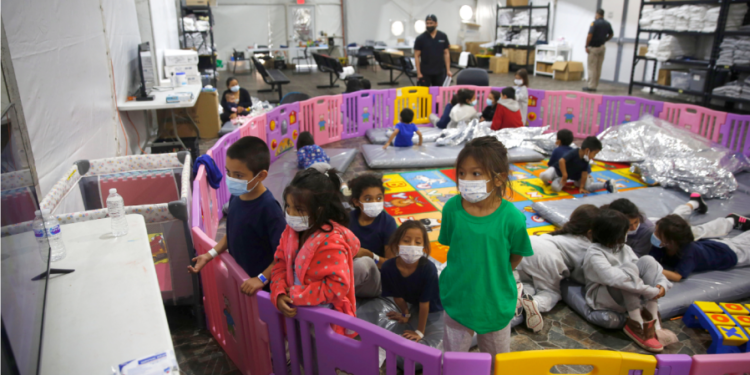
The Trump administration has issued a stop-work order to a firm that provides legal representation to thousands of unaccompanied migrant children.
In a memo, obtained by The Hill, the Department of the Interior informed the Acacia Center for Justice that “the Government hereby directs your firm to stop all work associated with the scope of Contract 140D0422C0009,” which provides “Legal Services for Unaccompanied Children.”
The letter also directed Acacia to “cease all services and the ordering of supplies” and to immediately inform subcontractors of the stop-work order.
The Department of the Interior did not cite a specific reason for the order but said it was “being implemented due to causes outside of your control and should not be misconstrued as an indication of poor performance by your firm.”
President Trump has made cracking down on immigration a key tenet of his second term, including in some cases the elimination of certain government services, such as the CBP One app used to apply for asylum.
Acacia’s Unaccompanied Children Program provides legal services to more than 26,000 children who are in or have been released from the custody of the Office of Refugee Resettlement, according to its executive director, Shaina Aber.
Aber said the program protects children from human trafficking, helps immigration courts run more smoothly and ensures “a modicum of due process, so that children navigating the immigration system alone understand their rights and legal obligations.”
She slammed the stop-work order in a statement responding to the administration’s letter.
“The administration’s decision to suspend this program undermines due process, disproportionately impacts vulnerable children, and puts children who have already experienced severe trauma at risk for further harm or exploitation,” Aber wrote.
“We stand ready to work with the Department of Health and Human Services to review and rapidly restore these essential services so that Acacia and our partners can continue supporting vulnerable children,” she continued.
Rebecca Beitsch contributed.







